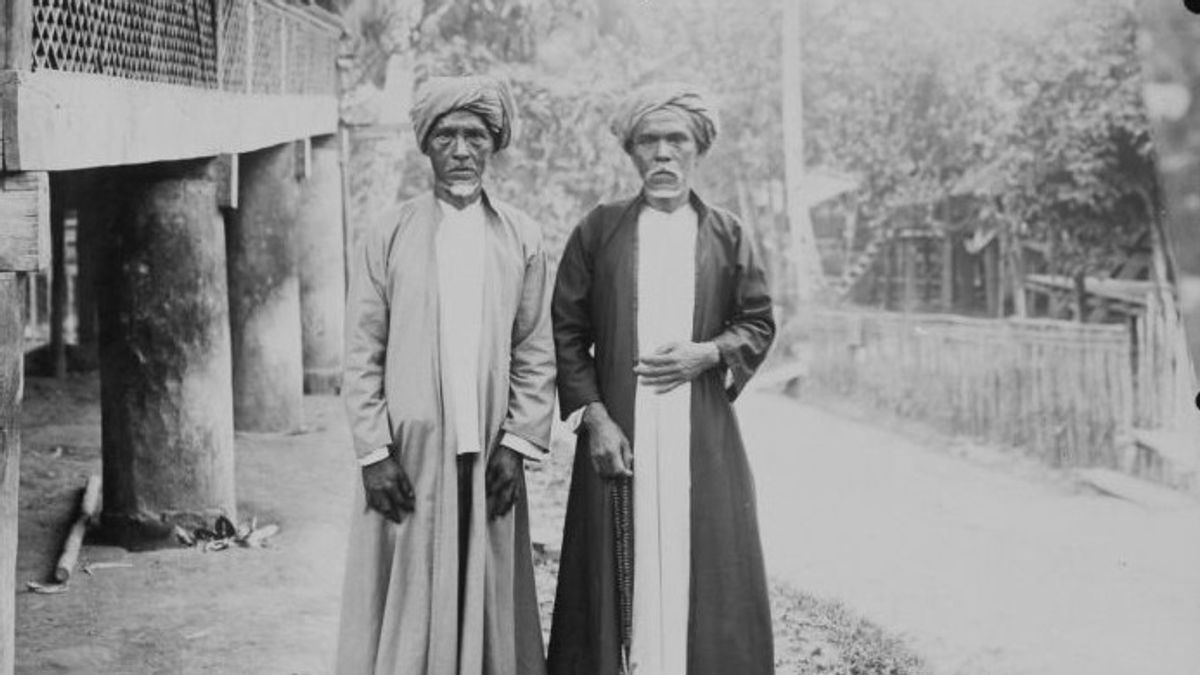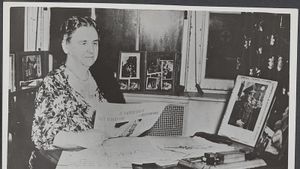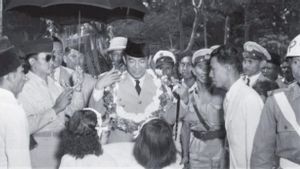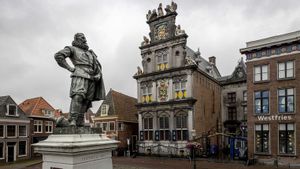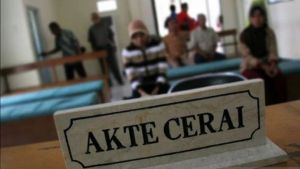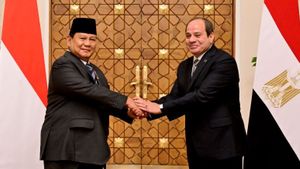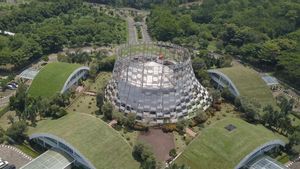JAKARTA - Today, 132 years ago, September 20, 1890, a tea boss from the Netherlands, Karel Frederik Holle, wrote to the Governor General of the Dutch East Indies, Cornelis Pijnacker Hordijk. The contents of the letter asked the leaders of the Dutch East Indies to immediately carry out extra strict supervision of Islamic religious schools.
Holle argued that many rebellions were spearheaded by the ulama and his students. Moreover, most scholars are considered to have brought the spirit of pan-Islamism ideas from Mecca. The idea that invites Muslims to unite against colonialism.
The pilgrimage is a common activity carried out by the bumiputras since time immemorial. The goal is clear. Muslim natives want to get closer to the Creator. However, these activities began to interfere with the existence of the Dutch in the archipelago in the 1800s.
Those who returned from the holy land of Mecca in fact helped bring a new understanding. Pan-Islamism, the name. An import ideology that invites all Muslims of the world to fight colonialism and imperialism on earth. Whoever perpetuates colonialism, will surely be resisted with all his might.

Rebellion appeared everywhere. Many scholars who had just returned from the pilgrimage became the pioneers of the rebellion. Pan-Islamism was spread to his students. Everything moves against the Dutch. The owner of the power is overwhelmed. Loss too. In fact, because of the rebellion, the Dutch efforts in the colony did not run smoothly.
Dutch debt so piled up. In the rebellion of Prince Diponegoro and the peasant rebellion of Banten in 1888, for example. The Netherlands is dizzy not playing. Therefore, Pan-Islamism was considered a serious threat that gave rise to anti-Dutch attitudes.
“The idea of pan-Islamism, whatever it may be - the idea is a ghost that circulates everywhere like Islamic fundamentalism today - must not be allowed to spread to the Dutch East Indies. Linkage to western culture is the colony's ultimate goal."
“Islamic culture is antithetical to that goal. any indication that – in their daily life, not their religion – Muslims prefer Islamic or Eastern ways over Western ways which are seen as a step back on the road to civilization and an indication of an anti-Dutch mentality,” Kees van Dijk said in the book Hindia Belanda dan Perang Dunia I 1914-1918 (2013).
Pan-Islamism also developed rapidly throughout the Nusantara. Religious schools or places where the Koran is recited – mosques, houses, or Islamic boarding schools – have become a means of spreading ideas which the Dutch consider a radical agenda.

Dutch tea entrepreneur Holle saw the potential for major rebellion from the proliferation of religious schools. Holle, who incidentally was the honorary adviser to the native affairs of the Dutch East Indies government, also wrote a letter on September 20, 1890. He asked the Governor-General, Cornelis Pijnacker Hordijk, to immediately carry out strict supervision of religious schools.
“Reflecting on the events (peasant rebellion) in Cilegon in 1888, in 1890, K.F. Holle advised the government to carry out strict supervision of Islamic religious education. This happened because the rebellion of the warriors in Banten was judged to have been driven by pilgrims and religious teachers. For the sake of uniformity in their supervision, K. F. Holle also suggested that district heads report the list of teachers in their area every year.”
“Then, in 1904, Snouck Hurgronje also proposed that the supervision include special permission from the regent, a list of teachers and students, and supervision by the regent only by a committee. In 1905, a regulation on Islamic religious education was issued, called the Teacher Ordinance. This regulation states that the regulations apply to the Java-Madura region, including those that apply to the Priangan region,” explained Ading Kusdiana in the book Sejarah Pesantren (2014).
VOIR éGALEMENT:
The English, Chinese, Japanese, Arabic, and French versions are automatically generated by the AI. So there may still be inaccuracies in translating, please always see Indonesian as our main language. (system supported by DigitalSiber.id)
